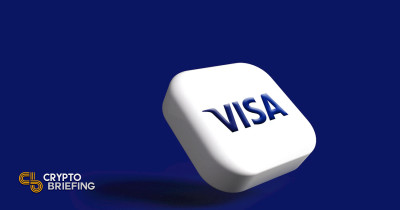Visa and PayPal executives advocated for the broader adoption of stablecoins during a panel at the DC Fintech Week forum earlier today.
Visa’s Head of Crypto, Cuy Sheffield, and PayPal Digital’s CEO, Jose Fernandez da Ponte, underscored the transformative potential of stablecoins in streamlining cross-border transactions and reshaping global payments.
The conversation centered around how stablecoins, once primarily used in crypto trading, are now becoming essential tools for streamlining international business-to-business (B2B) and peer-to-peer (P2P) payments.
Stablecoins can significantly reduce settlement times, allow for 24/7 transactions, and minimize the costs associated with traditional cross-border payment methods, such as SWIFT transfers.
Fernandez da Ponte emphasized that stablecoins are helping companies move money faster and more efficiently across borders, allowing for quicker repatriation of profits and better foreign exchange rates.
He noted that CFOs are starting to adopt stablecoins as they realize the benefits of immediate settlement and reduced counterparty risks.
Sheffield, while discussing the evolving applications of stablecoins, introduced the concept of the “stablecoin sandwich,” where fiat currency is used on both ends of a transaction, with stablecoins facilitating the transfer in the middle.
This model has already proven effective for businesses moving funds from the US to Mexico, where stablecoins are converted into pesos through local exchanges.
Anna Yuan, founder of stablecoin infrastructure provider Perena, also discussed how high-performance blockchains, like Solana, are increasingly being used to support these transactions, enabling near-instantaneous transfers.
She explained that fast block times make Solana ideal for handling stablecoin transactions, while also highlighting the challenges of cross-chain interoperability between slower networks.
Both Visa and PayPal executives stressed that stablecoins are not just a tool for crypto traders anymore, but are rapidly becoming a cornerstone for modern global payment systems. They expect the technology to be increasingly adopted by businesses and consumers alike.
Read the full article here

